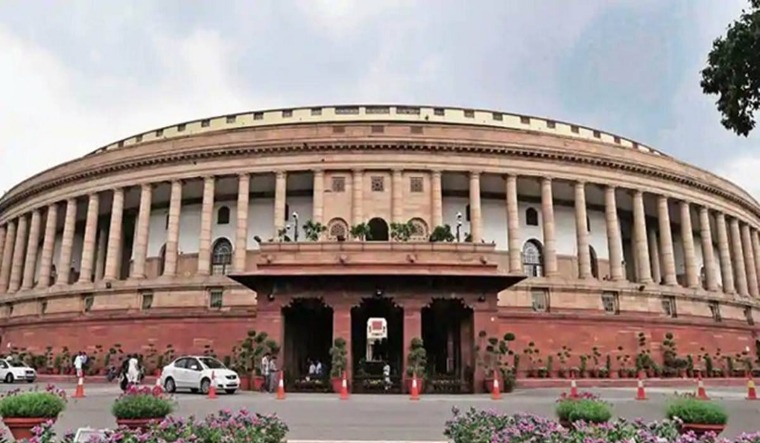Context
-
Recently, one of the MLA of Maharashtra was elected Deputy Speaker of the Uttar Pradesh Assembly, which has barely five months left in its tenure.
-
The developments raise several questions, and refocus attention on the 17th Lok Sabha which, more than two years after it was constituted in 2019, remains without a Deputy Speaker.
What does the Constitution say about the Deputy Speaker?
- Article 93 says: “The House of the People shall, as soon as may be, choose two members of the House to be respectively Speaker and Deputy Speaker thereof and, so often as the office of Speaker or Deputy Speaker becomes vacant, the House shall choose another member to be Speaker or Deputy Speak
 er, as the case may be.”
er, as the case may be.” - Article 178 contains the corresponding position for Speaker and Deputy Speaker of the Legislative Assembly of a state.
Is it mandatory under the Constitution to have a Dy. Speaker?
- Constitutional experts point out that both Articles 93 and 178 use the words “shall” and “as soon as may be” — indicating that not only is the election of Speaker and Deputy Speaker mandatory, it must be held at the earliest.
What are the time-frame and rules for the election of the Dy. Speaker?
- All that the Constitution says is the election must be held as soon as possible.
- Generally speaking, the practice in both Lok Sabha and the state Legislative Assemblies has been to elect the Speaker during the (mostly short) first session of the new House — usually on the third day after oath-taking and affirmations take place over the first two days.
- The election of the Deputy Speaker usually takes place in the second session, even though there is no bar on having this election too in the first session of the new Lok Sabha/Assembly. But the election of Deputy Speaker is generally not delayed beyond the second session without genuine and unavoidable constraints.
- In Lok Sabha, the election of Deputy Speaker is governed by Rule 8 of The Rules of Procedure and Conduct of Business in Lok Sabha. According to the Rule, the election “shall be held on such date as the Speaker may fix”, and the Deputy Speaker is elected once a motion proposing his name is carried.
Similar provisions in the State Legislative Assembly Rules.
- Once elected, the Deputy Speaker usually continues in office until the dissolution of the House.
- Under Article 94 (Article 179 for state legislatures), the Speaker or Deputy Speaker “shall vacate his office if he ceases to be a member of the House of the People”.
- They may also resign (to each other), or “may be removed from…office by a resolution of the House of the People passed by a majority of all the then members of the House”.
Do the powers of the Speaker extend to the Deputy Speaker as well?
- Article 95(1) says: “While the office of Speaker is vacant, the duties of the office shall be performed by the Deputy Speaker”.
- In general, the Deputy Speaker has the same powers as the Speaker when presiding over a sitting of the House.
- All references to the Speaker in the Rules are deemed to be references to the Deputy Speaker when he presides.
- It has been repeatedly held that no appeal lies to the Speaker against a ruling given by the Deputy Speaker or any person presiding over a sitting of the House in the absence of the Speaker. (Kaul and Shakdher, 7th edition, p. 137)
Does being Dy. Speaker protect an MP or MLA from the law of disqualification?
- No — with one specific exemption.
- Para 5 of the Tenth Schedule (commonly known as the anti-defection law) says that a person who has been elected Speaker/ Deputy Speaker shall not be disqualified if he, by reason of his election to that office, voluntarily gives up the membership of the political party to which he belonged immediately before such election — and does not, so long as he continues to hold such office thereafter, rejoin that political party or become a member of another political party.
- This exemption applies to the Rajya Sabha Deputy Chairman, Chairman/ Deputy Chairman of a state Legislative Council, and Speaker/ Deputy Speaker of a state Legislative Assembly as well.
Can courts intervene in cases of a delay in electing the Dy. Speaker?
- A petition before the Delhi High Court has argued that the delay in the election of the Lok Sabha Deputy Speaker violates Article 93 of the Constitution.
- There is no precedent of a court forcing the legislature to elect the Deputy Speaker. However, experts said the courts do have jurisdiction to at least enquire why there has been no election to the post of Deputy Speaker, since the Constitution does envisage an election “as soon as may be”.
Polity Current Affairs UPSC 2022 : Click Here
IAS Abhiyan is now on Telegram:
- Abhiyan Official Telegram Channel: Click Here to Join
- For Mains Value Edition (Facts, Quotes, Best Practices, Case Studies): Click Here to Join
